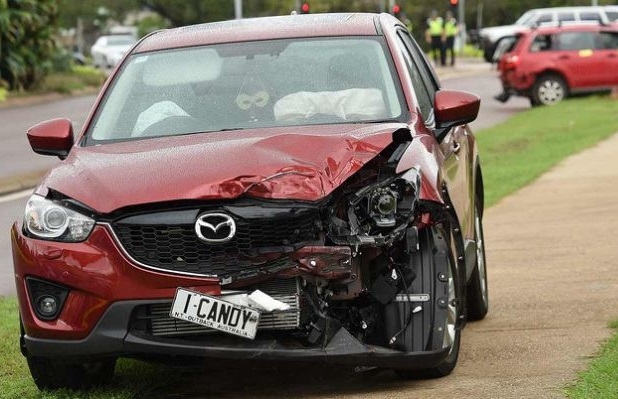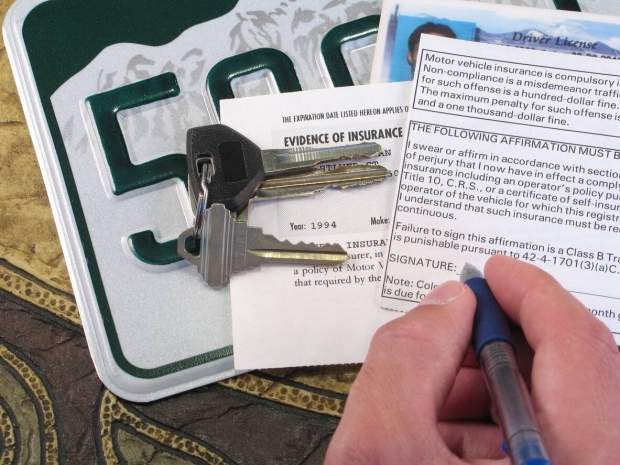If you have a problem with your car’s cooling system, a small problem can turn into a huge (and costly!) problem very quickly! Let’s talk about what some issues are, whether you need to do a quick repair or a total radiator replacement, how much it might cost, and whether or not it’s better to fix or replace the radiator or sell your broken car for cash.
How Much Does a Radiator Replacement Cost?
Your radiator is a vitally important part of your car. Without a properly functioning radiator, your car will overheat in almost all cases. Gone unchecked, a blown radiator will result in permanent and severe damage to your vehicle — like a cracked engine block, a blown head gasket, or a broken water pump and thermostat, or a broken transmission (if your transmission fluid is cooled by the radiator). As you might imagine, the costs of these repairs will set you back much more in the long run than the choice to fix a radiator.
Sometimes a radiator can be a simple fix, and other times it will need to be replaced entirely. The radiator replacement cost you are quoted will depend on many things: the make, the model, and the year of the car, for starters. Every car has a different radiator and a different engine bay, so the actual cost of the parts and the actual labor to get into it and replace it vary. The average price of replacing a radiator on a newer vehicle is between $300 and $1200. Why is it so expensive?
Because your radiator is part of your car's entire cooling system, there is a lot of work to be done. The cooling system repair cost is so high because a mechanic will need to disassemble the whole cooling system to do a radiator replacement. That means he will have to:
- Check for engine coolant leaks
Depending on the radiator damage, he will need to:
- Drain the entire system of fluids
- Remove the cooling fan and various hoses connected to the system
- Flush the current system to ensure there are no clogs
- Conduct a radiator change and install a new radiator
- Fill the new system with coolant
- Perform a pressure test to ensure there are no leaks in the new system
So when you ask, “How much does it cost to replace a radiator?” and get that initial shock of $300-1200, now you see why. There’s a lot of work that needs to be done by a radiator mechanic to replace a radiator. This is why it’s much better to get any issue with your car’s cooling system looked at and cover the radiator repair cost the moment it arises. We will look at why your cooling system might fail later.
A Look At What A New Radiator Costs
Because there are so many variables (cost of parts, cost of labor, type of vehicle, location, etc) that go into the total cost of replacing a car radiator, we have compiled a table of market research to give you an estimate to answer “How much does it cost to fix a radiator?” Of course, this is all done with market research provided from all over the USA, so it’s just meant to provide you with an average cost. It may cost more or less depending on many things, but here’s a quick breakdown of the costs involved with replacing a radiator in a variety of everyday cars.
| Model | Labor | Parts | Total Cost |
| Ford F-Series | $315-402 | $396-791 | $711-1193 |
| Chevrolet Silverado | $142-181 | $481-921 | $623-1102 |
| Ford Focus | $110-141 | $182-329 | $292-470 |
| Toyota Camry | $244-311 | $295-601 | $539-912 |
| Toyota Corolla | $87-110 | $205-519 | $292-629 |
| Nissan Altima | $228-291 | $419-548 | $647-839 |
| Honda CR-V | $189-241 | $270-531 | $459-772 |
| Honda Civic | $173-221 | $272-342 | $445-563 |
| Honda Accord | $173-221 | $265-358 | $438-579 |
| Ford Fusion | $173-221 | $363-672 | $536-893 |
Should You Repair or Replace Your Radiator?
Because various problems can happen to your radiator and there are a variety of fixes (that all cost money!), it’s best to go through them individually to see what your next move should be if you’re having trouble with your radiator. But first… Do I need to bring my car to a mechanic to be looked at, or can I do it myself? If you don’t know how or have all the tools to do the whole process above, the simple answer is: bring it to your trusted mechanic.
Sometimes, a simple repair may be in order and other times when a total radiator replacement needs to be done. Let’s look at some of the issues that can arise within a car’s cooling system that don’t warrant replacing a car radiator but rather a smaller fix.
- Leaking coolant. It largely depends on where the coolant is leaking from, but a leak can usually be repaired without replacing the whole radiator. Sometimes it comes from a poor connection between the hose and the radiator; sometimes, it can come from small holes in the hoses itself. A hose leak repair cost will cost you about $150 depending on the vehicle — half for parts and half for labor.
- A clogged radiator. A clogged radiator doesn’t need to be replaced, but it will need to be partly disassembled and completely flushed by a professional. If there’s a faulty connection in one of the hoses, road debris can enter the system (or it can rust from inside, as we mention below) and stop the proper flow of coolant around the system. Without the proper flow of coolant in the system, your radiator will not perform optimally. Sometimes a clog in the system will create a buildup of pressure and cause a leak. A coolant leak repair cost will be between $45 and $200, depending on how much labor and how many replacement parts are required.
- Faulty radiator pump. Within the cooling system is a pump that circulates the coolant through the entire system. The whole system is dependent on the proper flow of coolant, so if you have a faulty pump, coolant will not circulate, and your car will overheat. If you have a faulty pump, you don’t need to replace the whole radiator; you just need to replace the pump. The radiator pump cost of replacement will range from $150 to $800, depending on your vehicle.
- Damaged coolant reservoir. Because a car’s engine temperature will vary, that means the coolant within the system will contract or expand depending on how hot or cold it is. The coolant reservoir allows excess coolant to pool in the reservoir when it’s not needed (for example, when the engine is hot and the coolant level is high enough). The excess coolant will flow into the reservoir without creating high pressure within the system, leading to other problems. The coolant reservoir replacement cost will run you between $150 and $200 for both parts and labor.
- Cracked radiator. We will get into what causes a cracked radiator below, but sometimes a small crack isn’t grounds for a total replacement of a radiator. The cost of a cracked radiator repair will vary depending on your vehicle, but we’ve heard quotes from $50 to $300 including parts and labor.
A Look At Radiator Repair Costs
Here is a small sample of the costs you should be willing to pay for different kinds of radiator repairs. Of course, this is still just a market research average of a few cars, so the cost of repairing your particular car may vary. The prices below reflect what it would cost to replace each part (i.e., coolant thermostat) and includes the price of parts and labor. You may be tempted to do these repairs yourself, but like we mentioned above, it would be difficult for the average person unless you’re particularly handy.
Car | Coolant thermostat | Lower radiator hose | Radiator hose |
Ford Fusion | $225-368 | $131-197 | $119-180 |
Ford Explorer | $212-308 | $208-310 | $207-315 |
Hyundai Elantra | $313-500 | $345-539 | $108-154 |
An In-depth Look At What Causes A Radiator To Crack
Rust
Rust makes metal thinner and more brittle, so wherever there is rust on your radiator, it is a potential weak point in the metal of the radiator. Because radiators hold water (and are partly made of metal), they are prone to rust.
Not only can rust cause a radiator to crack, but it can also cause damage well before it actually cracks. Because the coolant within the system flows through tight spaces, it needs to be viscous, otherwise it will get clogged and prevent the cooling system from working effectively. When there’s rust inside any part of the cooling system, it breaks down into the coolant and creates sludge inside the system, resulting in a clogged cooling system.
A faulty thermostat
The thermostat is the part of your cooling system that measures and regulates the amount and temperature of the water that needs to be circulated in order for your motor to run optimally. When this thermostat isn’t doing its job correctly, the engine is at risk of overheating, which can cause the need for a radiator crack repair. A faulty thermostat can also lead to an excess of coolant pressure. If the pressure gets too high, it’s at risk of cracking.
Very hot weather
In the summer months of places that get extremely hot, if a radiator doesn’t have the correct amount of coolant, the excess environmental heat makes it very difficult for the radiator to do its job correctly. When it can’t do its job, it can cause the radiator to become overheated and crack.
Very cold weather
If you live in a region where winter temperatures reach below zero, that means certain fluids inside your car’s cooling system might freeze if they’re the correct ones. Coolant is generally a 50/50 mix of antifreeze and water. If you noticed some coolant leaking out from underneath your car during the warmer months and have been topping it off with water, it won’t have the right ratio of antifreeze. What happens is you have water — which is susceptible to freezing — inside your cooling system. The first day of winter might cause that water to freeze and expand, which will crack your radiator. A simple antifreeze leak might cost you a lot more in the long run than if you had conducted proper maintenance all throughout the year.
Junkcarsus is a Reputable Junk Car Buyer Working for 12 Years
Whether you have a coolant leak fix costing you precious coolant by the minute or water pump leak repair costing you precious cooling ability to protect your vehicle, a faulty cooling system will cause a lot of damage if left unchecked. If you have driven your car with a dysfunctional cooling system, it’s likely that your motor (and possibly your transmission) has experienced severe damage.
So what should you do if your car is worth only a cheap amount, but the cost of repairs is quite expensive? A lot of people are faced with this decision — what to do with a car that is worth less than the cost of repairs? If that’s the situation you’re in, selling your car for junk for cash might be your most financially sound option.
JunkCarsUS has been in the same day junk car removal industry for over 12 years and has made us the number one buyers of junk cars in the US! We take nearly any car in any condition and will give you a top dollar instant offer for how much cash we’re willing to pay you!
Our simple, three-step process makes getting rid of your junk car as easy as making a phone call and accepting our offer! Give us a call at (855) 547-1550 and speak to one of our friendly customer service associates to see what your car is worth. If you’re happy with our offer (and we are happy to give you a highest price guarantee!), arrange a time and a place for us to pick it up, and one of our trusted tow truck drivers will arrive on time and safely remove your vehicle from your lot at no cost to you. That’s right! FREE towing!
You may be wondering about paperwork, but don’t! Our team of expert car buyers have been buying junk cars for years and know exactly what to fill out — and we will! Our tow truck driver will arrive with all the paperwork already filled out and ready to sign. All you need to do is sign on the dotted line, and you’ll have your cash in hand!
If you have problems with your radiator and the replacement car radiator price is more than your car’s worth, give JunkCarsUS a call TODAY and see how you can change that “out of pocket” repair cost into cash “in your pocket” by selling your junk car!
FAQ
How much does it cost to fix a radiator?
This depends on a few things like the make and model of your car and what’s wrong with it. A small coolant leak from a faulty hose might only require a new hose, but hoses can range from $120 to upwards of $500 depending on your car. A small crack might set you back only about $50 for parts and labor, but replacing a larger component like the thermostat can cost up to $500!
How much does it cost to replace a radiator?
This will depend on your vehicle, as well, but replacing a radiator is obviously much more expensive than a small fix to it. The range we found from USA market research is between $290 and $1200!
What causes a radiator to crack?
There can be multiple reasons a radiator will crack. Some of them are extreme fluctuations in temperature, rust, or a faulty thermostat.
Can you drive with a radiator leak?
Technically you can, but not for long. Driving a car with a radiator leak will eventually lead to the engine overheating and becoming damaged. It’s always best to fix any small cooling system issues right when you catch them, because if you ignore them, more damage is bound to happen.
How to seal a cracked radiator?
If you can find the crack in your radiator, and it’s small enough to seal, it may be possible for you to do it yourself. You can seal a crack in a radiator with an epoxy you can buy from any auto parts store. While the temperature of the engine is cool, clean around the crack and apply the epoxy and wait for it to fully dry before turning on the engine.





